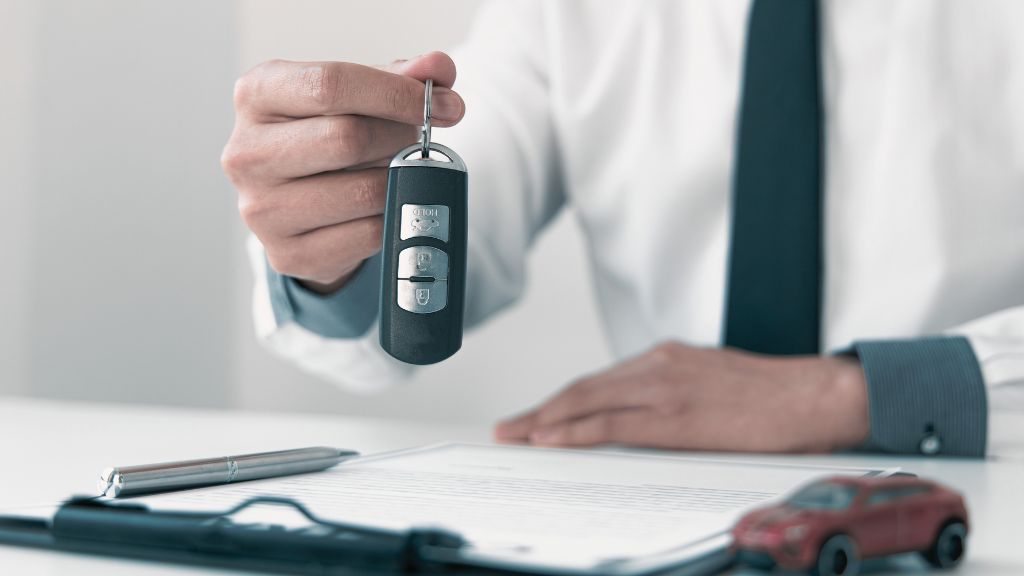Buying a car is an exciting experience, but it’s important to be careful to avoid scams. Scammers often target car buyers, especially those who are less experienced. Knowing the warning signs can help protect you from losing money or ending up with a bad vehicle.
In this blog, we’ll explain What Are Possible Red Flags or Signs of a Scam When Buying a Car. These include prices that seem too good to be true, pressure to act quickly, unusual payment requests, and more. By being aware of these signs, you can make a safer, more informed decision and avoid potential scams.
Let’s dive into the details to help you have a smooth and secure car buying experience.
What Are Possible Red Flags or Signs of a Scam When Buying a Car?
1. Too Good to Be True Prices
One of the most common signs of a car scam is a price that seems too good to be true. If a car is listed for significantly less than its market value, it’s a major red flag. Scammers use unbelievably low prices to lure buyers. Always compare the price of the car with similar models on the market to see if it aligns. If it’s much cheaper, be cautious.
2. Pressure to Act Quickly
Scammers often create a sense of urgency, pushing you to make a quick decision. They might claim there are other buyers interested or offer a special discount if you act immediately. This tactic is designed to prevent you from taking the time to research and uncover the scam. Never rush into a purchase; take your time to make an informed decision.
3. Lack of Vehicle History Report
A legitimate seller should have no problem providing a vehicle history report. This report details the car’s past, including any accidents, repairs, and title status. If the seller refuses or hesitates to provide this report, it’s a warning sign. They might be hiding serious issues like previous accidents or title fraud.
4. Unusual Payment Requests
Be wary of sellers who ask for unusual payment methods, such as wire transfers, gift cards, or cryptocurrency. These methods are difficult to trace and recover once the money is sent. Legitimate sellers typically accept standard payment methods like bank transfers, checks, or financing through reputable lenders.
5. No In-Person Meeting
A major red flag is when a seller avoids meeting in person. They might claim to be out of town, in the military, or otherwise unavailable. Legitimate sellers are usually willing to meet in person so you can inspect the car. If a seller insists on handling everything online or through the mail, be very cautious.
Also read: What is the Scale for Minimum to Maximum Possible Credit Score?
6. Vehicle Not Available for Inspection
Always insist on inspecting the car before purchasing. If the seller makes excuses about why you can’t see the car, it’s likely a scam. Common excuses include claiming the car is in storage, with a shipping company, or located far away. A genuine seller will allow you to inspect the vehicle or take it to a mechanic for a professional evaluation.
7. Suspiciously Clean Title
While a clean title is generally a good sign, it can also be a red flag if the car’s history suggests otherwise. Check for signs of title washing, where a car with a salvaged or damaged title is retitled in a different state to hide its history. Verify the title through official channels and be cautious if the car’s history seems too clean compared to its condition or price.
8. Seller with Poor or No Reviews
When buying from an individual or a dealership, check online reviews. A reputable seller should have a history of satisfied customers. If you can’t find any reviews or if the reviews are overwhelmingly negative, it’s a warning sign. Scammers often operate under different names to avoid negative feedback.
9. Vague or Incorrect Information
Scammers often provide vague or incorrect information about the car. They might be unable to answer specific questions about its history, features, or condition. If the information they provide is inconsistent with what you find in the vehicle history report or through a professional inspection, be cautious.
10. Incomplete or Missing Documents
Ensure that all necessary documents are available and properly filled out before making a purchase. These include the title, bill of sale, and any other required paperwork. If the seller hesitates or fails to provide these documents, it’s a red flag. Incomplete paperwork can lead to legal issues and difficulties in transferring ownership.
11. Fake Escrow Services
Some scammers use fake escrow services to trick buyers. They set up a website that looks legitimate, promising to hold your payment until you receive the car. Once you transfer the money, the scammer disappears, and you’re left without the car or your money. Always use reputable and well-known escrow services if needed.
12. Too Many Personal Stories
While some sellers might share personal stories, be cautious if they seem overly emotional or dramatic. Scammers often use sob stories to gain your sympathy and trust, making you more likely to overlook red flags. Stay focused on the facts and details of the car and the transaction.
Also read: Is a Reverse Mortgage Right for Me?
Conclusion
Buying a car is a significant investment, and it’s important to protect yourself from potential scams. Always be vigilant and take your time to research and verify all information. If something feels off, it probably is. By watching out for these red flags, you can avoid falling victim to car buying scams and make a safe, informed purchase.

